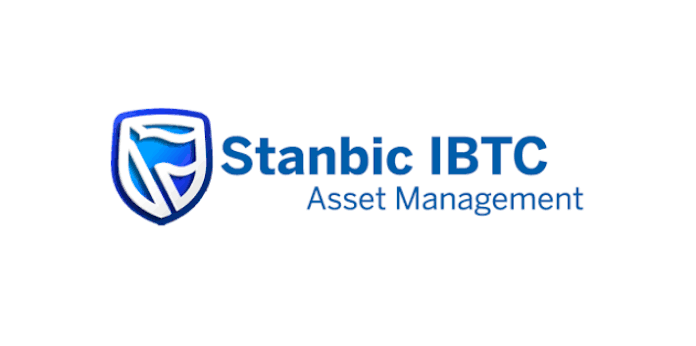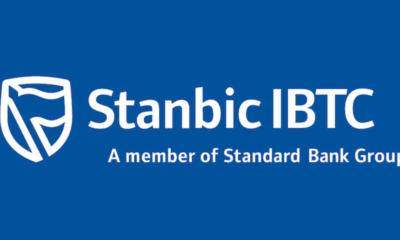Stanbic IBTC Asset Management, a subsidiary of Stanbic IBTC Holdings PLC, charted a new course for real estate investment in Nigeria. The financial institution was appointed to manage a real estate investment trust scheme, UPDC REIT, as confirmed by the Security and Exchange Commission (SEC) in May 2021.
The UPDC Real Estate Investment Trust (UPDC REIT) was listed on the Nigerian Exchange Limited (NGX) in year 2008. The fund manager, Stanbic IBTC Asset Management, was bestowed with the responsibility to implement the closed-ended fund’s investment strategy and other related activities.
Since it took up management of the REIT, Stanbic IBTC Asset Management focused efforts on improving the operational and governance structure of the REIT to form the bedrock for improved performance. Likewise, investor relations was prioritised with the presentation of a ‘Fact Behind the Figures’ session on the NGX in December 2021. These measures had been sustained.
Recently the company announced the 2021 audited financial result for the UPDC REIT. The result showed that there were significant rooms for improvement in the largest REIT in Nigeria.
The Fund Manager’s analysis highlighted two critical reasons for the decline recorded. One was the impact of the COVID-19 pandemic on commercial properties within the portfolio which contributed over 60% of the portfolio’s rental income, and the other was the effect of portfolio revaluation, in view of market realities, which resulted in a 19% decline.
The REIT’s rental income in 2021 declined to NGN1.26 billion, compared with NGN1.57 billion generated in the previous year. The decline was underpinned by reduced occupancy level, which was due to remote working strategies adopted by many corporates in response to the COVID-19 pandemic. Additionally, due to delayed recovery of rental income from some tenants who struggled to bounce back from the impact of COVID-19 on their businesses, a NGN141 million impairment charge was booked.
A fair value loss of NGN5.04 billion was taken on the investment properties because the REIT’s properties were revaluated to fulfil regulatory requirements. Thus, the REIT recorded a loss before tax of NGN4.48 billion from the positive of NGN1.93 billion in the prior year.
As the spread of the pandemic waned, the Fund Manager was optimistic that outstanding rental fees would be recovered, and the demand for commercial office spaces would improve as more firms returned to work in office premises.
Stanbic IBTC Asset Management offered copious reassurance to stakeholders. Oladele Sotubo, Chief Executive of the Asset Management Company, stated in a commentary that, “as a Fund Manager, we have a responsibility to conduct due diligence in ensuring that the Fund which we now manage is accurately valued in line with regulatory requirements and in alignment with our expert knowledge of Funds management. With the improved liquidity on the stack and a significant discount presented by the current market price, a unique opportunity is presented to investors that seek to buy into the future of the REIT.
“In addition, we are exploring opportunities in alternative sectors which have shown economic resilience and become profitable in the last few years. Some of these sectors include retail purpose-built student accommodation, short lets, industrial properties, and so on. We expect that opportunistic acquisitions in these sectors would give room for short to medium term capital gains.
“I will summarise by saying that we are not too worried. Rather, we are excited at this opportunity to bring our experience and expertise to bear in returning the UPDC REIT to profitability while also contributing tangibly to the provision of sustainable housing and development of Nigeria’s real estate sector.”
The Chief Executive of Stanbic IBTC Holdings, Dr Demola Sogunle, commented on the Financials saying, “as a forward-thinking organisation, we are not oblivious of the critical nature of this sector and the need for growth, hence our commitment to evolve the UPDC REIT such that investors can enjoy substantial returns on their investments. Now more than ever, we encourage Nigerians to invest in UPDC REIT, as those who invest at this time are more likely to benefit from significant medium to long term gains as the Fund performance improves and yield takes on an upward curve.”
UPDC REIT is a close-ended property fund sponsored by UPDC Plc (UPDC) in 2013 via an issue of 3,000,000,000 units at NGN10 each and is listed on the Nigerian Exchange Limited (NGX).
Stanbic IBTC Asset Management is dedicated to developing customer assets and real estate investment trusts in Nigeria.


 Naira4 weeks ago
Naira4 weeks ago
 Naira4 weeks ago
Naira4 weeks ago
 Travel4 weeks ago
Travel4 weeks ago
 Naira3 weeks ago
Naira3 weeks ago
 Jobs4 weeks ago
Jobs4 weeks ago
 Naira4 weeks ago
Naira4 weeks ago
 Investment4 weeks ago
Investment4 weeks ago
 Travel4 weeks ago
Travel4 weeks ago

















